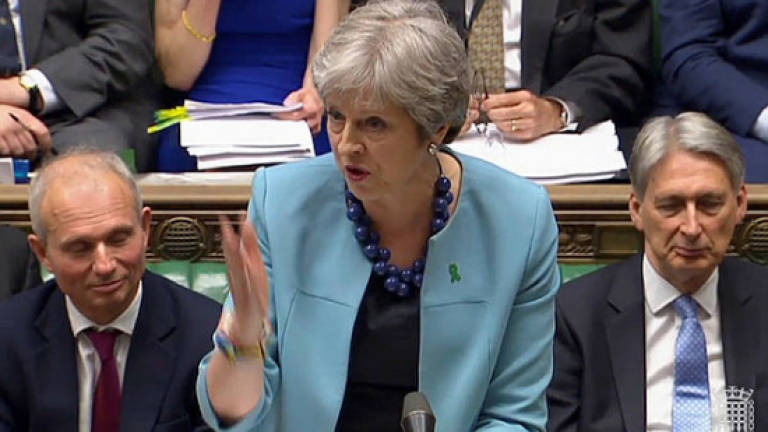UK mulls extending EU customs arrangements: Report

LONDON: Britain's government has formally discussed staying in the EU's customs union after the post-Brexit transition period, fearing new trading arrangements will not be ready, it was reported on Thursday.
The Telegraph newspaper reported that a cabinet sub-committee this week agreed Britain would stay aligned to EU rules, possibly until two years after the transition phase ends in December 2020.
Britain is due to leave the European Union in March 2019 but continue the current trading arrangements during the transition, to give time for the two sides to agree the terms of a new partnership.
There are growing concerns, however, that any new customs system will not be in place before then — not least because Prime Minister Theresa May's government has yet to decide on what arrangements it wants.
The idea of a further period of transition has been been mooted in recent weeks by May's former chief of staff, Nick Timothy, her former deputy Damian Green, and business secretary Greg Clark.
Downing Street repeatedly said that Britain will be leaving the customs union after the transition ends, although May herself on Thursday gave no date.
"The United Kingdom will be leaving the customs union, we are leaving the European Union," she told reporters as she arrived for a summit in Bulgaria.
"Of course we will be negotiating future customs arrangements with the European Union."
The suggestion of a "softer" Brexit lifted the pound overnight, according to Jasper Lawler, head of research at London Capital Group, an online trading platform.
"Should the report be confirmed as true then this rally could have a lot further to go, but right now traders are awaiting some form of confirmation."
But hardline eurosceptics are unhappy, with leading Conservative MP Jacob Rees-Mogg telling the Telegraph: "People voted to leave, they did not vote for purgatory."
The government has promised to reduce as much as possible any border checks on goods going in and out of the EU, and also to avoid any "hard" frontier between Northern Ireland and EU-member Ireland.
At the same time, Britain wants to be able to forge its own trade deals with non-EU countries, meaning it will not accept common external EU tariffs.
But ministers have yet to find a solution, and even those on offer could take years to implement.
The Telegraph said that one of the options gaining support, which would use technology to ease border checks, may not be in place until 2023 — suggesting the transition could be extended for two years.
May is under intense pressure to resolve the issue, after agreeing a "backstop" solution with the EU that would see Northern Ireland stick with the bloc's customs arrangements if no alternative is found.
She has said it would be unthinkable to divide the nation off from the rest of Britain, insisting that any new trade rules must apply to the whole country. — AFP